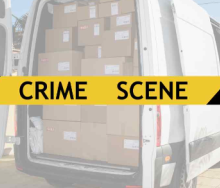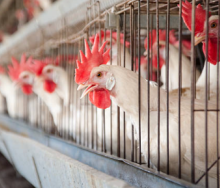About 500 jobs in the third-party logistics sector are at risk after it has emerged that South Africa’s largest tobacco manufacturer is reducing deliveries to certain stores because of the illicit cigarette trade’s impact on revenue.
The restructuring exercise at British American Tobacco South Africa (Batsa), which used to have about 78% of local market share, has been necessitated by the manufacturer’s post-Covid inability to recover from the blow it suffered due to the pandemic.
Prior to the coronavirus outbreak at the end of 2019, about 10 000 indirect employment opportunities were created by Batsa’s operations in South Africa.
It contributed more than R13 billion to the government in tax revenue, employed more than 1 100 people directly, and bought goods and services worth R6 billion from local suppliers.
However, since the lockdown regulations of 2020, particularly the ban on cigarette sales, which gave rise to a boom in contraband, Batsa’s bottom line has received a pounding.
According to Reuters, the former tobacco giant, a principal contributor to the micro-economy of Heidelberg in Gauteng, is engaging in retrenchment discussions with 20 employees responsible for overseeing external deliveries.
It is estimated that Batsa’s cigarette supply business has decreased by as much 40% since 2020, forcing it to issue recurring warnings of the potential threat to its position as a macro-economic labour force contributor.
On various occasions, it has noted that the illicit market continued to thrive after South Africa emerged from a spate of lockdowns, leading to a significant decline in legitimate cigarette sales and necessitating potential job cuts.
Batsa has estimated that the illicit cigarette trade accounts for up to 70% of South Africa's total cigarette market, underscoring the severity of the situation and the challenges faced by the company in maintaining its operations and workforce.
Last November, Batsa’s operator status in the wider Lesedi community of Heidelberg was highlighted through a study by Oxford Economics showing its role as principal labour force in the community.
“Batsa’s factory in Heidelberg plays an anchor role in the local economy of the Lesedi district, contributing R3.2 billion to its GDP last year, R42.2 million to municipal revenue and supporting a total of 3 854 jobs in an area with 43% unemployment,” Oxford’s socio-economic impact research found.
Johnny Moloto, Batsa’s sub-Saharan Africa head of External Affairs, told researchers that “the factory contributed a total gross added value of R14.9bn to South Africa’s overall GDP in 2022 and supported 35 234 jobs and R12.6bn in total tax revenue, representing 23.5% of all excise duties on alcohol, fuel and tobacco.
After Oxford Economics completed its research, he said it showed that, “for every direct job at the Heidelberg factory, another 92 jobs are supported somewhere else in the South African economy”.
“Importantly, given devastating levels of unemployment in the Lesedi district, employees at the factory support on average three dependants, and earn more than twice the average national wage.”













